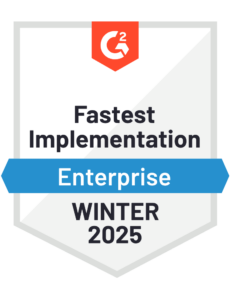Accountants Are Already Equipped for AI—They Just Don’t Realize It Yet
White Paper
Share
Get the White Paper or Audiobook
4 Keys to Implementing Artificial Intelligence in Accounting with Effective Data Structure
Im Jahr 2025 werden Buchhaltungsteams sowohl mit altbekannten als auch neuen Herausforderungen konfrontiert sein. Die Anforderungen an das Finanzteam steigen weiter – gleichzeitig verschärft sich der Fachkräftemangel in der Buchhaltungsbranche. Automatisierung und Künstliche Intelligenz können zwar helfen, den wachsenden Druck zu mindern und mit weniger Ressourcen mehr zu leisten – doch ohne eine solide Grundlage aus präzisen und umfassenden Daten wird ihre Einführung scheitern.
CFOs are investing in automating their accounting functions to prepare for the future, but their teams are burned out from rapid technological changes and high turnover. Additionally, their executive peers are asking CFOs to deliver insights on cost, growth objectives, and providing data that can tell a story to potential investors.
These issues, while daunting, can all be addressed by branching strategies that begin from one fundamental point: a strong foundation in the business’ data structure.
In this white paper we will discuss the growing expectations for CFOs to act as data stewards—leaders who are not just able to compile and report numbers, but to act as data storytellers—and the growing demand for artificial intelligence in accounting. We delve into ways that accounting teams can deliver results through structured data, how AI and automation can help, and how to upskill employees for improved data literacy with AI usage. The good news? Many of the skills needed for AI competency are skills accountants already possess.
Bonus! Download this white paper and read it in your preferred format: PDF or MP3 Audiobook.






